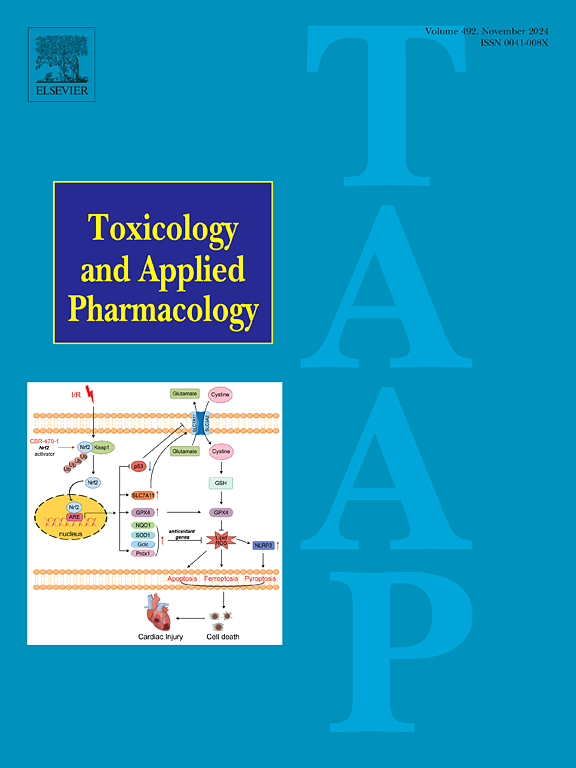Prolactin impairs erectile function via eNOS suppression independently of testosterone
IF 3.4
3区 医学
Q2 PHARMACOLOGY & PHARMACY
引用次数: 0
Abstract
Erectile dysfunction (ED) frequently occurs in men with prolactin-secreting pituitary tumors (prolactinomas), even when serum testosterone levels remain normal. The precise mechanisms responsible for this phenomenon are poorly understood. We aimed to explore whether elevated prolactin directly impairs erectile function independently of testosterone, and to identify the underlying molecular pathways involved. Clinical data analysis showed that elevated prolactin levels negatively correlated with erectile function in men with pituitary tumors who maintained normal testosterone levels. Using a prolactinoma rat model induced by diethylstilbestrol, we confirmed that hyperprolactinemia resulted in ED without altering testosterone. Bromocriptine, a dopamine agonist, effectively reduced prolactin levels, restored erectile function, and improved penile endothelial nitric oxide synthase (eNOS) expression without affecting testosterone. Mechanistically, hyperprolactinemia significantly inhibited the phosphoinositide 3-kinase (PI3K)–protein kinase B (Akt)–eNOS signaling pathway in penile tissue. Consistent with animal studies, cultured rat corpus cavernosum endothelial cells exposed to prolactin displayed reduced eNOS expression. Our findings demonstrate that prolactin directly impairs erectile function by suppressing the PI3K–Akt–eNOS pathway independently of testosterone, suggesting new therapeutic targets for treating ED in patients with prolactinoma. Patients with prolactinoma accompanied by normal testosterone levels should be evaluated for erectile dysfunction.
催乳素通过eNOS抑制而独立于睾酮而损害勃起功能
勃起功能障碍(ED)经常发生在男性分泌催乳素垂体瘤(催乳素瘤),即使血清睾酮水平保持正常。造成这种现象的确切机制尚不清楚。我们的目的是探讨是否升高的催乳素直接损害勃起功能独立于睾酮,并确定潜在的分子途径参与。临床数据分析显示,在维持正常睾酮水平的垂体肿瘤患者中,催乳素水平升高与勃起功能呈负相关。利用己烯雌酚诱导的催乳素瘤大鼠模型,我们证实了高催乳素血症导致ED而不改变睾酮。溴隐亭是一种多巴胺激动剂,可有效降低催乳素水平,恢复勃起功能,改善阴茎内皮一氧化氮合酶(eNOS)表达,而不影响睾丸激素。机制上,高泌乳素血症显著抑制了阴茎组织中PI3K -蛋白激酶B (Akt) -eNOS信号通路。与动物实验一致,培养的大鼠海绵体内皮细胞暴露于催乳素后,eNOS表达降低。我们的研究结果表明,催乳素通过独立于睾酮的抑制PI3K-Akt-eNOS通路直接损害勃起功能,为治疗催乳素瘤患者ED提供了新的治疗靶点。催乳素瘤伴睾酮水平正常的患者应评估勃起功能障碍。
本文章由计算机程序翻译,如有差异,请以英文原文为准。
求助全文
约1分钟内获得全文
求助全文
来源期刊
CiteScore
6.80
自引率
2.60%
发文量
309
审稿时长
32 days
期刊介绍:
Toxicology and Applied Pharmacology publishes original scientific research of relevance to animals or humans pertaining to the action of chemicals, drugs, or chemically-defined natural products.
Regular articles address mechanistic approaches to physiological, pharmacologic, biochemical, cellular, or molecular understanding of toxicologic/pathologic lesions and to methods used to describe these responses. Safety Science articles address outstanding state-of-the-art preclinical and human translational characterization of drug and chemical safety employing cutting-edge science. Highly significant Regulatory Safety Science articles will also be considered in this category. Papers concerned with alternatives to the use of experimental animals are encouraged.
Short articles report on high impact studies of broad interest to readers of TAAP that would benefit from rapid publication. These articles should contain no more than a combined total of four figures and tables. Authors should include in their cover letter the justification for consideration of their manuscript as a short article.

 求助内容:
求助内容: 应助结果提醒方式:
应助结果提醒方式:


